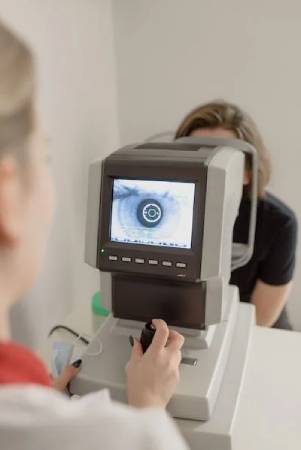
In recent years, the integration of technology in healthcare has revolutionized the way doctors and patients interact. One fascinating development in this field is the use of chatbots to enhance doctors' bedside manner. Traditionally, bedside manner refers to a physician's ability to communicate effectively, show empathy, and provide emotional support to patients. However, with the introduction of chatbots, doctors now have an additional tool to assist them in cultivating a positive patient experience
Chatbots be situated computer programs designed to simulate
conversation with human users. They utilize artificial intelligence algorithms to
analyze and respond to user input, creating a virtual conversation that can
feel remarkably human-like. When doctors employ chatbots to improve their
bedside manner, they are essentially utilizing technology to enhance their
communication skills and connect with patients on a deeper level.
One of the key benefits of using chatbots in this context is that they can help doctors develop active listening skills. Active listening is a critical aspect of effective communication, as it allows physicians to understand their patients' concerns, fears, and needs. By incorporating chatbots into the patient interaction process, doctors can collect more comprehensive information about a patient's condition and provide tailored responses. These chatbots can be programmed to ask open-ended questions, follow up on specific symptoms, and gather important details that doctors may overlook in a rushed, face-to-face encounter.
Additionally, chatbots can be used to enhance a doctor's
empathy and emotional support capabilities. Empathy plays a vital role in
healthcare, as patients often seek not only medical expertise but also
understanding and compassion. Chatbots can be programmed to respond
empathetically to patients' emotional cues and provide comforting words, allowing
doctors to extend their emotional support beyond the physical confines of their
presence. For instance, a patient expressing anxiety about an upcoming
procedure can receive soothing words and reassurance from a chatbot, helping
them feel more at ease before the actual appointment.
Furthermore, chatbots can assist doctors in refining their communication style and adapting it to different patients. Every individual is unique, and their preferred mode of communication can vary. Some patients may feel more comfortable asking questions in writing, while others may prefer face-to-face conversation. By incorporating chatbots, doctors can provide patients with alternative communication channels, accommodating their preferences and enabling them to express themselves in a way that feels natural to them. This flexibility can enhance patient-doctor relationships, fostering trust and strengthening the overall therapeutic alliance.
Moreover, chatbots can also contribute to patient education
and empowerment. In many medical encounters, patients may feel overwhelmed by
the amount of information presented to them, leading to confusion or anxiety.
Chatbots can help doctors simplify complex medical terminology, explain
procedures step-by-step, and answer patients' questions in a clear and concise
manner. By doing so, chatbots empower patients to take an active role in their
healthcare journey, enabling them to make informed decisions and actively
participate in their treatment plans.
It is worth noting that while chatbots can augment doctors'
bedside manner, they are not intended to replace human interaction. The aim is
to integrate technology as a supportive tool to enhance, not replace, the
patient-doctor relationship. Face-to-face consultations remain crucial for
establishing trust, demonstrating empathy through body language, and conducting
physical examinations that cannot be replicated through chatbot interactions
alone. Chatbots should be seen as an adjunct to traditional healthcare
practices, providing an additional layer of support and assistance to doctors.
In conclusion, the use of chatbots to improve doctors'
bedside manner is an exciting development in the realm of healthcare
technology. These intelligent computer programs can help physicians develop
active listening skills, enhance empathy and emotional support, adapt their
communication style, and empower patients through education. By integrating
chatbots into their practice, doctors can create a more patient-centered
approach, fostering stronger relationships and ultimately improving the overall
quality of care. While chatbots are not a substitute for human interaction,
they serve as valuable tools in augmenting doctors' ability to provide
compassionate and empathetic care to their patients.